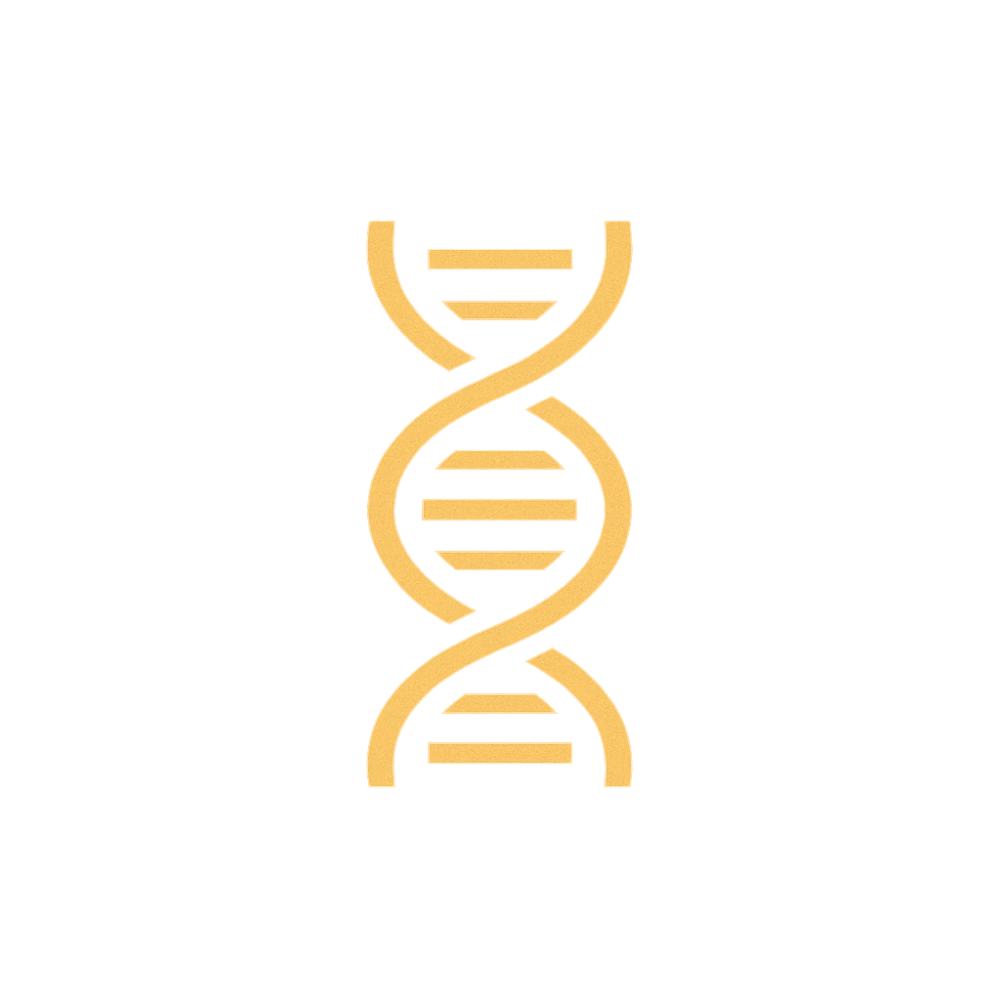Why Menopause Weight Gain Feels So Hard (and How Your Genes Quietly Shape It)
Apr 30, 2025
There are things no one really prepares you for.
You expect some hot flashes. You expect your cycles to shift. Maybe you even expect a few restless nights here and there.
But the weight gain? The way your body changes shape almost without warning?
That part hits differently.
It is not just the number on the scale.
It is the way clothes start fitting differently. The way your energy shifts.
The way you can be doing everything you used to — eating carefully, moving your body, paying attention — and somehow still feel like you are drifting in a direction you did not choose.
And maybe the most frustrating part?
The labs show “low estrogen” — confirming menopause — but the weight keeps piling on anyway.
As if the numbers and the reality you are living in do not quite match.
It is enough to make you wonder if anyone really understands what is happening inside your body.
But there is a reason for it.
And the full story has been hiding under the surface for a long time.
It Is Not Just About Estrogen Being “High” or “Low”
When estradiol drops during menopause, yes, it changes a lot.
- Metabolism slows.
- Insulin sensitivity drops.
- Fat redistributes toward the abdomen.
- Hunger signals get louder.
But that is not the whole picture.
Because even with low estradiol, your body still has to clear out old estrogens — and more importantly, their metabolites.
And if that detox process is sluggish — because of genetic variations, because of nutrient depletion, because of years of life piling up — those leftover estrogen fragments can quietly fuel inflammation.
They can disrupt insulin. They can make fat cells more inflammatory themselves.
So even if your estradiol looks low on paper, your internal environment can still be very much weighted toward fat storage, inflammation, and metabolic slowdown.
It is not just about how much estrogen is there. It is about what your body can do with what is left.
And this is where your genes come into the story — shaping how gracefully (or not) your body navigates the shift.
Genes That Quietly Tip the Balance During Menopause
Certain genetic pathways make it harder for the body to adapt smoothly once hormonal scaffolding starts to fall away.
COMT (Catechol-O-Methyltransferase):
Helps clear estrogen metabolites and stress hormones. Slower variants = more lingering hormonal debris = subtle metabolic disruption.
CYP1B1 (Cytochrome P450 1B1):
Breaks down estrogen into different pathways. Hot variants = more inflammatory estrogen byproducts = fat storage signals turned up.
PEMT (Phosphatidylethanolamine N-methyltransferase):
Essential for healthy bile flow. When slow, detoxifying hormones becomes sluggish, and fat digestion falters too.
GST family genes (GSTM1, GSTT1, GSTP1):
Protect against oxidative stress from estrogen metabolism. Deletions or slow activity = more inflammation, more cellular stress.
MTHFR (Methylenetetrahydrofolate Reductase):
Controls methylation, detox, neurotransmitter balance. Slower variants = less resilience across the board.
Why It Feels Like Nothing Works the Way It Used To
The strategies you used to rely on eating cleaner, exercising more, sleeping a little better, probably should work.
But if detox bottlenecks are clogging the system. If inflammatory estrogens are lingering. If insulin sensitivity is dropping with no hormonal “buffer” left. Then your body is operating on a very different playing field now. It is not that your body has turned against you.
It is that the rules changed and no one handed you the new map.
How to Start Shifting the Terrain (Based on Your Genes)
If you are ready to work with your genetics instead of against the current, here are real-world places to start:
Support COMT:
- Magnesium daily (food sources like cacao nibs, pumpkin seeds).
- Gentle nervous system resets: slow walks after meals, breathing exercises.
- Support methylation first before attempting deep liver detoxes.
Support CYP1B1:
- Load up on cruciferous vegetables (broccoli, arugula, cabbage).
- Green tea daily for natural balancing (catechins support safer detox).
- Limit alcohol and minimize high-heat cooked foods.
Support PEMT and Bile Flow:
- Daily bitters before meals (arugula, dandelion, lemon water).
- Choline-rich foods like egg yolks, liver, salmon.
- Hydration plus light movement (to stimulate bile flow).
Support GSTM1, GSTP1 (Antioxidant Defense):
- Sulfur-rich foods (garlic, onions, Brussels sprouts).
- Support glutathione production naturally with whey protein, selenium, NAC if needed.
Support MTHFR and Methylation:
- Leafy greens, beets, clean proteins every day.
- Avoid synthetic folic acid (check processed foods).
- Manage emotional stress intentionally, not just physical habits.
One Last Thought on Menopause and Weight.
This is not a question of if there's something flawed or wrong. It is adapting to a new landscape without the scaffolding it once had.
Understanding your genes and how they shape the way you detox, adapt, and rebuild, can shift menopause from a battle you feel like you are losing into a landscape you can actually navigate.
It is not about chasing perfection.
It is about working with the blueprint you were given, with care and patience and real understanding.
If you have not had genetic testing yet, it might be worth considering. I often recommend the Works Panel by MaxGen Labs — it is the one I have walked hundreds of patients through, and it still surprises me how much clarity it can bring.
If you're interested, have a look at the MaxGen panel to see if it's right for you. Click the link below to find out more.
And if you already have genetic results but are sitting there thinking… now what? You are not alone. Whether you have just ordered your panel or you have had it sitting in your inbox for months, I am happy to help. We can set up a consultation where I walk you through it, step by step, and help you start connecting the dots in a way that actually makes sense.
If that feels like something you are ready for, you can learn more about setting up a review here.
Schedule a consult with me (Coming Soon!)


